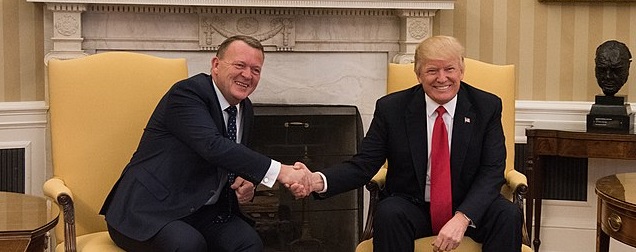Danish PM fears protectionism in Europe
March 26, 2019 | Expert Insights

The EU must resist French efforts to “politicise” the single market or “copy and paste the Chinese model” of state intervention, Denmark’s prime minister said in a defence of Europe’s liberal economy.
Background
Denmark is a Nordic country and the southernmost of the Scandinavian nations. Denmark lies southwest of Sweden and south of Norway and is bordered to the south by Germany. Denmark introduced social and labour-market reforms in the early 20th century that created the basis for the present welfare state model with a highly developed mixed economy.
The Constitution of Denmark was signed on 5 June 1849, ending the absolute monarchy, which had begun in 1660. It establishes a constitutional monarchy organised as a parliamentary democracy. The government and national parliament are seated in Copenhagen, the nation's capital, largest city, and main commercial centre.
Denmark is considered to be one of the most economically and socially developed countries in the world. Danes enjoy a high standard of living and the country ranks highly in some metrics of national performance, including education, health care, protection of civil liberties, democratic governance, prosperity, and human development.
Lars Løkke Rasmussen is a Danish politician serving as the 25th and current Prime Minister of Denmark since 2015, previously holding the position from 2009 to 2011, and as Leader of the centre-right liberal Venstre party since 2009.
Analysis
Lars Løkke Rasmussen is one of the leaders of small, northern member states who worry that the loss of Britain’s free-market voice after Brexit will open an era of more interventionist, Franco-German-led policies.
“I’m not in favour of a soulless market but I’m not in favour of a politicised market either,” Mr Rasmussen told the Financial Times in an interview, referring to French president Emmanuel Macron’s pitch to transform EU competition and industrial policy.
“It is so important to strike the right balance,” he added, saying he agreed with Mr Macron that Europe could not be “naive” about Chinese economic power. But, he said, Europe should not emulate China either by “allocating state aid to certain companies, or help them avoid competition. We shouldn’t pick the winners.”
Mr Rasmussen’s remarks underline how countries such as Denmark and the Netherlands are becoming increasingly vocal in Brussels as the EU approaches a critical juncture this year, with new leadership being selected for all the bloc’s main institutions.
“It is just another reason to miss Britain around the table,” he said. “France pushing this perspective is not new [but] Britain was in the opposite corner, and Germany would strike a balance and reach a compromise. We definitely miss the more liberal-orientated voice in the room.”
There are several Danish candidates for top jobs at the European Commission and European Council, including Margrethe Vestager, the EU’s competition commissioner; Helle Thorning-Schmidt, the former centre-left premier; and potentially even Mr Rasmussen himself.
“No, no, no, no,” the Danish former lawyer chuckled when asked whether he was eyeing a Brussels role. “I’m working hard to stay in office.” Denmark has to hold a general election by June 17, just around the time candidates for the jobs will be chosen.
The prime minister declined explicitly to back Ms Vestager’s re-nomination to a big commission job, especially if her small Social Liberal party is the outside government in Copenhagen. Mr Rasmussen and Ms Vestager are part of the same Alde group in the European Parliament, but their respective national parties hail from different wings of Danish liberalism.
He pointedly noted that “all Danes were proud” of Ms Hedegaard and would have seen her reappointment as “an excellent idea”. She was nevertheless replaced after a single term by Ms Vestager in 2014. “It is something we have to decide later,” he said.
The precise date of Denmark’s election is unclear. All eyes in Copenhagen are on Mr Rasmussen’s waistline, considered a foolproof indicator of election timing given his won't for pre-campaign fitness training.
Assessment
Our assessment is that the Danish PM’s remarks are a response to the rising tide of European nationalism and the re-emergence of right-wing parties in European mainstream politics in the wake of Brexit and Donald Trump’s victory in 2016. We believe that the Danish PM’s call for protecting Europe’s free trade policies are economically and politically consistent with the EU’s own policy on free trade.








Comments